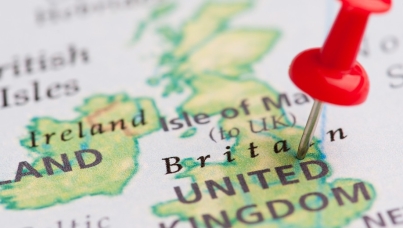Rishi Sunak’s satisfaction falls to equal worst ever Ipsos rating for a Conservative or Labour leader
- Net satisfaction with Sunak now at joint worst levels in history of Ipsos – going back to 1978 – equivalent to John Major and Jeremy Corbyn’s worst in 1994 and 2019.
- Yet public ambivalent on another Conservative leadership change – and none of the potential alternative candidates perform much better head-to-head with Starmer.
- Conservative vote share at 19%, a record low for second consecutive month- with Reform up to high of 13% in Ipsos polling.
- Despite leading the Conservatives by 25 points overall - Keir Starmer also registers his lowest net satisfaction score with the public as Labour leader.
The latest Ipsos Political Monitor, taken 3rd to 15th April 2024, explores public attitudes to Rishi Sunak and Keir Starmer in the runup to the next General Election, whether alternative Conservative MPs would perform better in a matchup versus Keir Starmer, if the two main parties should change their leader and the potential timing of the next General Election. As usual, we also capture voting intention preferences.
Visit our new polls and trends microsite
Voting intention
- Labour 44% (-3 pts from February), Conservatives 19% (-1), Reform UK 13% (+5), Liberal Democrats 9% (nc), Green 9 (+1), Other 6% (-1). Making Labour’s lead 25 points, from 27 in February.
- The Conservatives’ share of 19% is again the lowest ever recorded by Ipsos in our regular Political Monitor series, which has run since 1978.
- Reform UK are at a record high of 13% in Ipsos polling, although not quite yet at the heights of UKIP or the Brexit Party who reached 16 per cent in October 2014 and May 2019 respectively.
- Half (49%) of those with a voting intention say they have definitely decided who to vote for – but 47% may change their mind. Conservative supporters continue to be less likely to say they are certain to vote (63%, vs 70% for Labour), and more likely to say they may change their mind (52% vs 40%).
Leader satisfaction ratings
- 84% are dissatisfied with the way the government is running the country (+1 pts from February). 10% are satisfied (no change). Dissatisfaction with the government has not fallen below 70% since June 2022.
- 16% are satisfied with the job Rishi Sunak is doing as Prime Minister (-3 from February) and 75% say they are dissatisfied (+2). His net rating of -59 is not only a new low for Mr Sunak but it is also level with the all-time record low for a Prime Minister with Ipsos set by John Major in August 1994 (also -59), and Jeremy Corbyn’s record low for a Leader of the Opposition (-60) set in September 2019.
- 51% of current Conservative voters are satisfied with the job Sunak is doing (-3 points from February) and 37% are dissatisfied (no change).
- Keir Starmer’s ratings have also fallen since February. 25% are satisfied with his performance as Labour leader (-4) and 56% are dissatisfied (+1). His net score of -31 is his worst as Labour leader since he recorded a -29 in May 2021. Among Labour supporters, satisfaction with his performance has also dropped from 58% to 51%.
- Ed Davey’s ratings are unchanged, with 18% satisfied, 40% dissatisfied, and 42% don’t know.
Should the parties change their leaders?
Despite relatively poor leader satisfaction ratings, the public appear lukewarm on the prospect of the Conservatives or Labour changing their leader before the next election.
- 37% agree the Conservatives should change their leader before the next election, 33% disagree. 55% thought the Conservatives should change leader when Boris Johnson was PM in May 2022.
- 35% agree Labour should change their leader, 37% disagree. 62% thought Labour should change their leader under Jeremy Corbyn in July 2019.
Keir Starmer vs Rishi Sunak (and others)
- When presented with a head-to-head choice, the public think Keir Starmer would make the most capable Prime Minister over Rishi Sunak by a margin of 22 points (44% to 22%). 22% say neither and 10% don’t know.
- This is an increase in Keir Starmer’s lead since January (from 13 points to 22), and is similar to Starmer’s 20pt lead over Boris Johnson in July 2022. Although 2019 Conservative voters still prefer Sunak over Starmer by 49% to 20%.
Nobody from a list of 6 potential alternative Conservative leaders stands out as doing particularly better versus Keir Starmer in a head-to-head contest.
Starmer leads each of the following as most capable PM:
- Penny Mordaunt by 17 points (42% to 25%). 10% say neither and 22% don’t know.
- James Cleverly by 29 points (47% to 18%). 11% neither. 24% don’t know.
- Grant Shapps by 33 points (47% to 14%). 12% neither. 26% don’t know.
- Kemi Badenoch by 34 points (48% to 14%). 9% say neither. 29% say don’t know.
- Suella Braverman by 35 points (53% to 18%). 10% say neither and 19% don’t know.
- Priti Patel by 35 points (54% to 19%). 11% neither. 15% don’t know.
- There is a similar pattern among 2019 Conservative voters. Penny Mordaunt matches Rishi Sunak’s scores but all the others do worse.
Keir Starmer vs Rishi Sunak: detailed leader image ratings
Starmer leads Sunak on most leader image ratings. In particular, he leads Sunak by 10 points or more on understanding the problems facing Britain (35% to 20%), a capable leader (29% to 18%), giving me confidence about Britain’s future (20% to 10%) and trails by 10 points or more on negative traits such as being out of touch with ordinary people (43% to 72%) and being more style than substance (28% to 41%).
In terms of trends Rish Sunak’s ratings have worsened on most measures since last September. Particularly notable are his low scores on:
- Being a capable leader (18%, down from 26% and the lowest for any party leader since our series started in 2010),
- Understanding Britain’s problems (20%, down from 31% and also a record low),
- Being good in a crisis (18%, down from 28%, and the lowest for a Conservative leader in our series),
- Patriotic (down from 39% to 34%, the lowest since 2015) and only 10% for giving people confidence in Britain’s future (down from 18%),
- 72% say he is out of touch (which hasn’t changed from September but remains one of the highest we have seen).
Keir Starmer’s personal image rating has also declined on several measures since September. For example on:
- Capable leader (down from 35% to 29%),
- Understanding Britain’s problems (from 44% to 35%),
- Having a lot of personality (down from 21% to 16%),
- Good in a crisis (from 23% to 18%),
- Having sound judgement (32% to 26%), and
- Being patriotic (from 44% to 39%).
When should the next general election be called?
Just over half of Britons want the General Election held by the end of the summer.
- 42% want the election before the end of June.
- 10% want it in July or August.
- 23% say September or October.
- 10% November or December.
- 7% January 2025.
- 4% have no preference and 3% don’t know.
Unsurprisingly this splits along party lines: just 21% of Conservative supporters say they want it by August (55% want it later in the year, though still only 16% say in January 2025), while 62% of Labour supporters want it as soon as possible.
Gideon Skinner, Head of Political Research at Ipsos, said:
There’s no doubt that Rishi Sunak’s ratings are historically poor. Being in the company of John Major and Jeremy Corbyn before they lost elections does not bode well, while although it’s not unusual for a Prime Minister to be seen as out of touch, Rishi Sunak is also falling further behind on aspects such as being a capable leader.
But it’s still not clear the extent to which this a symptom rather than a cause of the Conservatives’ wider problems. The public are not crying out for another Conservative leadership change before the next election, and there is not much evidence that his potential challengers are seen as any better against the Labour leader, even among the Conservatives 2019 vote.
Labour will obviously be happier to have clear leads in voting intentions and in the leadership head-to-heads. But Keir Starmer is not building up a reserve of enthusiasm for his leadership, which could create problems further down the line - in fact, his own ratings are also slipping, and are some way behind the most popular Opposition leaders, even while Labour keeps its lead in the polls.
Technical note
Ipsos interviewed a representative sample of 1,072 adults aged 18+ across Great Britain. Interviews were conducted by telephone between the 3rd to 15th April 2024. Data are weighted to match the profile of the population. All polls are subject to a wide range of potential sources of error.
Click here to access our new Politics website, which features historic trends on voting intention and leader satisfaction.






